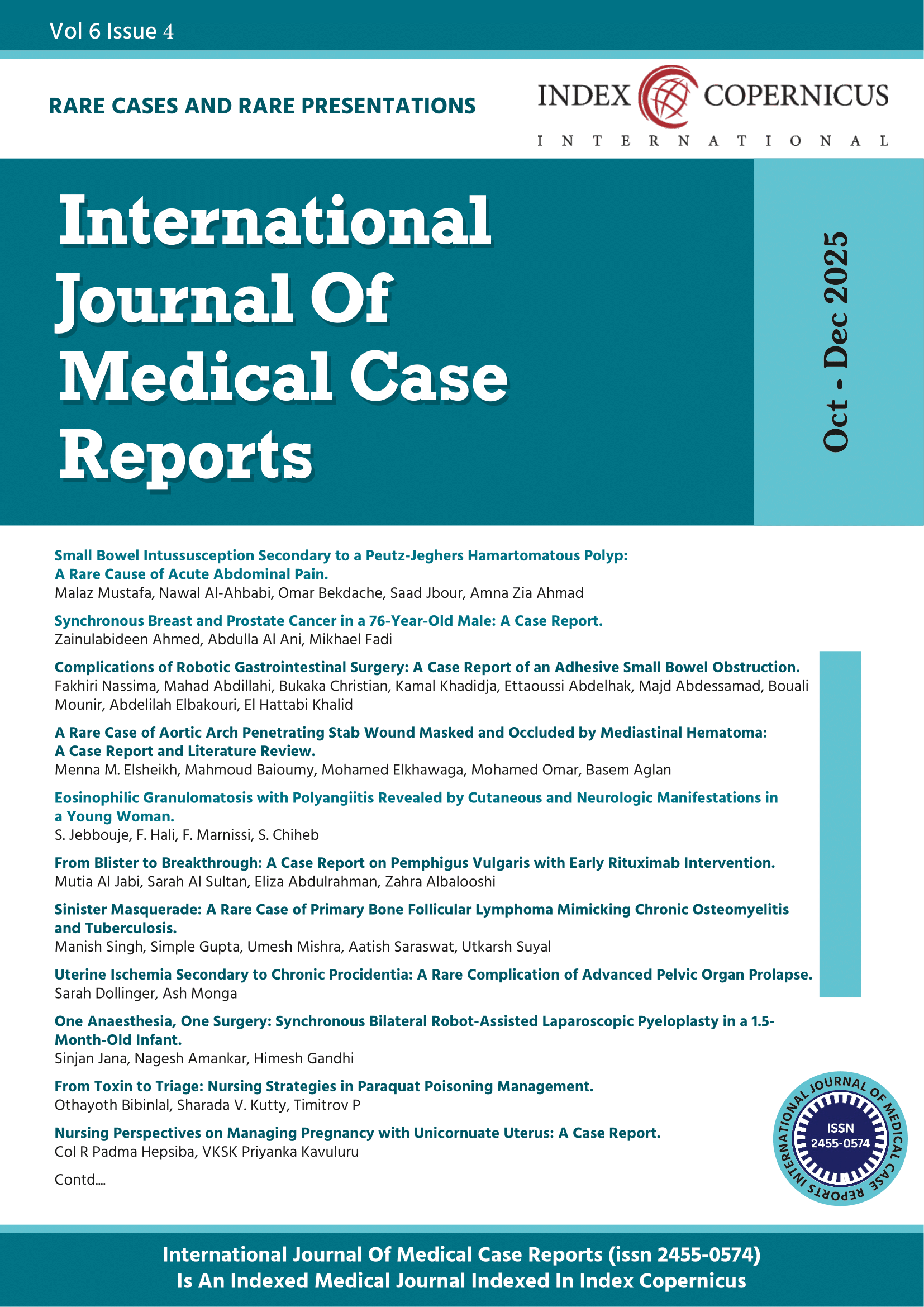From Blister to Breakthrough: A Case Report on Pemphigus Vulgaris with Early Rituximab Intervention.
Main Article Content
Abstract
Background:
Pemphigus vulgaris (PV) is a rare, chronic autoimmune blistering disorder characterized by IgG autoantibodies targeting desmoglein-3. This results in loss of keratinocyte adhesion and intraepidermal blistering. While systemic corticosteroids have historically formed the cornerstone of therapy, long-term use is associated with significant morbidity. Rituximab, an anti-CD20 monoclonal
antibody has recently emerged as a first-line agent due to its superior efficacy and safety profile. Early intervention with targeted immunotherapy is critical in improving disease outcomes and minimizing complications.
Case Report:
We report the case of a 50-year-old woman who presented with a one-month history of painful flaccid bullae and erosive, crusted lesions predominantly affecting the trunk, with extension to the chest, neck, scalp, ears, and oral cavity. Histopathological analysis revealed suprabasal clefting with acantholysis, and direct immunofluorescence demonstrated intercellular IgG deposition in a fishnet pattern, confirming the diagnosis of PV. The patient was started on rituximab as primary systemic therapy, combined with oral prednisolone, topical clobetasol, and dexamethasone elixir as adjunctive treatment. Supportive wound care and prophylactic supplementation with calcium and vitamin D were also provided. At two-week follow-up, the patient demonstrated reduced blister formation, improved healing of erosions, and no treatment-related complications.
Conclusion:
This case highlights the importance of early diagnosis and initiation of rituximab-based therapy in pemphigus vulgaris. Early intervention with B-cell–directed immunotherapy, combined with corticosteroids and supportive care, can reduce disease activity, limit steroid exposure, and improve long-term prognosis. A multidisciplinary, patient-centred approach remains essential to optimize
outcomes in this potentially life-threatening disease.
